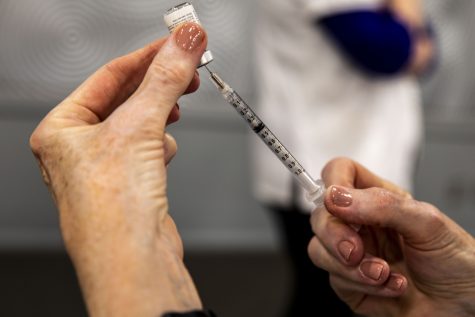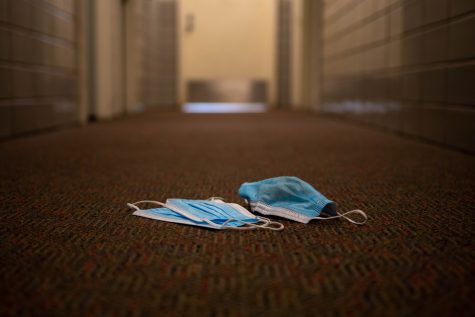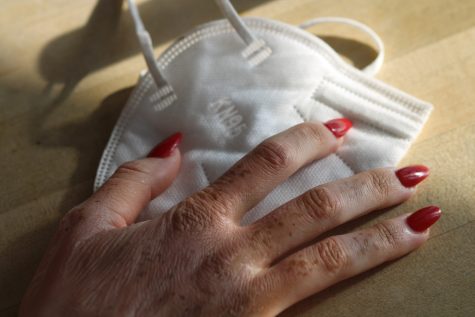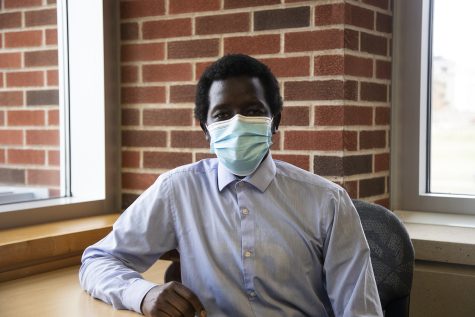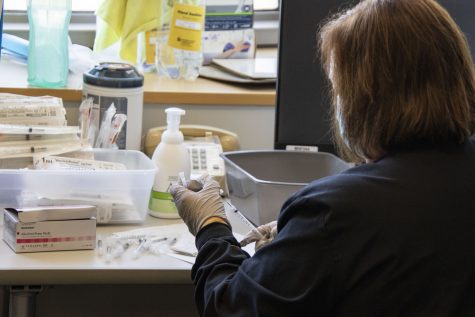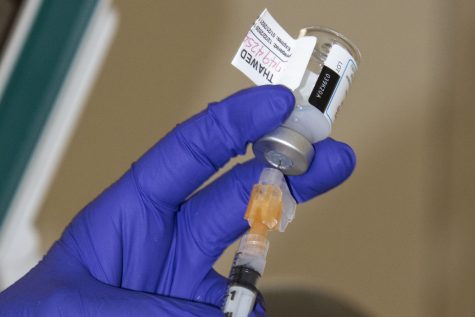UI Health Care tightens restrictions on patient visitation
Due to the rapid spread of COVID-19 and in respect of social distancing, the University of Iowa Hospitals and Clinics have made additional precautions regarding patient visitation postposing visitors for adult patients and limiting visitors to one for pediatric patients.
University of Iowa Hospitals and Clinics is seen on Sept. 17, 2018.
April 13, 2020
The University of Iowa Hospitals and Clinics is suspending most visits to hospital patients beginning on Wednesday to curtail the spread of the virus, UI Chief Medical Officer Theresa Brennan said in a news conference Tuesday.
“This was a difficult decision and we have discussed it at length and we know it is the right decision to protect our patients, our visitors, and our staff,” Brennan said.
UIHC will suspend nearly all visitors for adult patients, and for pediatric patients, there can be one visitor per day, and that visitor must a parent or legal guardian. This applies to all patient care facilities.
Suresh Gunasekaran, chief executive officer of UIHC, said in the release that maintaining the highest level of safety for patients and staff means limiting the number of people in hospital facilities.
“University of Iowa Hospitals & Clinics remains open for all essential health care services which means that over a thousand patients continue to come to our campus each day. To date, over 95% of these patients have no symptoms of COVID-19,” Gunasekaren said in the release. “All COVID-19 positive patients are kept in isolation. We are instituting these measures so that all patients can continue to come to our campus and know that they will be safe and taken care of.”
Because of the visitor restrictions, UI Health Care staff will provide daily updates to the patient’s point of contact outside the hospital. For any inpatients who do not have their own communication device, a staff member will help connect the patient with technology provided by the hospital. UIHC will also help with mobility and interpreter assistance for patients who need this support.
“There are designated staff who will be facilitating communications among the inpatients themselves, their care team, and the patient’s designated point of contact,” Brennan said. “This will be done whenever the patient wishes.”
Visitor exceptions will be made for patients with unique circumstances, Brennan said. For inpatients, one visitor will be allowed for patients in labor, in critical care, facing end-of-life care decisions, or in the emergency department.
Those visitors must be 18 or older, healthy, and screened for COVID-19 — a precaution that began in mid-March.





